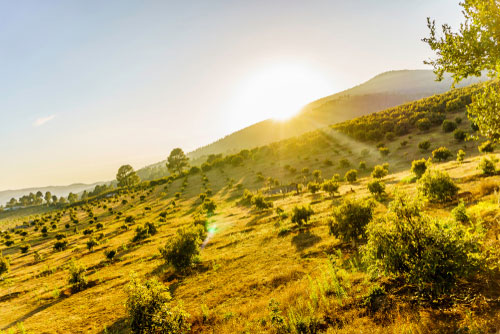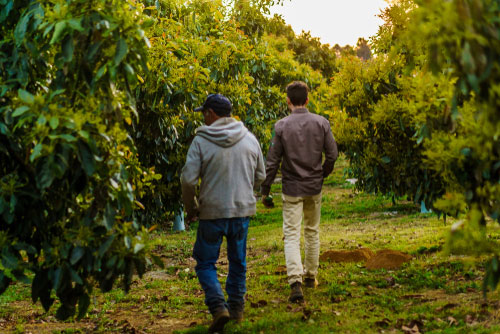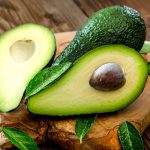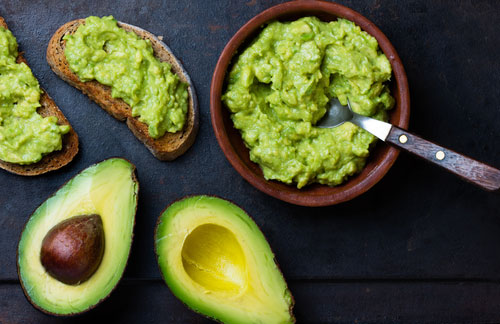Avocados became the latest trend in the Western World’s diet. Apart from their tasty flavor, they have many benefits for human health and well-being. But producing them in industrial numbers is harming the environment and local populations. We have set a high demand for avocados. Let’s go deeper into what’s happening around the supply.
Why Are Avocados So Popular? What Are Their Benefits?
Avocado is a stone fruit with a creamy texture that grows in tropical climates. In contrast to other fruits that consist mostly of carbohydrates, avocados have an unusual consistency due to a high content of healthy fats. But the chances are that you already knew about these, right? Especially if you live in the United States where it’s expected that 2,4 million tonnes of avocados were consumed in 2018 (3,1kg or 7pounds/year/person).
But where do all these avocados come from? Pues (well)… mainly from Mexico! Of the 5,7 million tonnes of avocado produced in 2016 in 564 thousand hectares of land, the Aztec country was accountable for 1,9 million tonnes (33%), of which around 37% were sold to the U.S.. The Dominican Republic and Peru, each with 0,6 and 0,5 million tonnes produced per year, respectively, made up the for world’s top 3 avocado producers in 2016, followed by Colombia, Indonesia, Brazil, and Kenya. The U.S. is ranked as the 6th biggest global producer with 0,2 million tonnes of avocados grown (90% of which grow in California). On the other hand, Spain is the biggest European avocado producer and holds the 15th position with 0,09 million tonnes of avocados produced.
Avocados look amazing, taste great and have plenty of nutritional benefits. They contain fat-soluble vitamins less common in other fruits, have high levels of B5, B6, K and E vitamins, protein, and unsaturated fatty acids. One avocado has, on average, twice the potassium of a banana. From guacamole to avocado toast, avocado salad, avocado ice cream or avocado oil, avocados also have very interesting properties and benefits that are recognized and used by the pharmaceutical and cosmetics industries. Sounds like an amazing fruit, right? It is indeed, but just like all other mass-produced commodities, these benefits come together with some (high) costs. Let’s figure out the impact that avocados can have on people & planet.
- Related:
The Environmental Impact Of Avocado Production: Are Avocados Eco-Friendly?

The environmental problem with avocados is not very different from the issues of other foods that end up turning into commodities – like coffee, palm oil, sugar, whole-flour or soy. Avocados are also grown as a monoculture, which means that the same crop (avocado trees) grows in the same land year after year, for many years. This mass-scale agricultural technique may be (economically) more interesting for investors or producers, but in the long run, it can be very harmful to the environment – making the production of avocados unsustainable. Why?
For many reasons. But long story short, monoculture plantations leave the soil with less nutrients and more vulnerable to diseases, leading to the need to use many pesticides and fertilizers. Both usually contaminate not only soils but also the surrounding biodiversity (human lives included) if they get dragged in runoff waters into distant ecosystems – as seems to be the case with the decline of monarch butterflies in Mexico. Moreover, over long periods of time, monoculture crops also deplete the soil, taking away most of its mineral properties.
At the same time, farmers in Mexico and other countries have been planting young avocado trees beneath forest canopies. They then slowly take down shrubs and old trees to provide avocado trees greater sunlight so that they can flourish better – contributing, therefore, to deforestation and as a consequence, to global warming and climate change.
But what truly makes avocado’s production special (for the wrong reasons) is the amount of water it consumes. According to some studies, avocados are among the 3 crops causing more water stress in their region of production and UNESCO’s research shows that they have a global average water footprint of 1981 m3/ton. For instance and as a comparison, grape crops have a water footprint 608 m3/ton, which means avocados have a very strong water impact. But the scenario around avocado production is about to get more intense.
The Social Impact of Avocado Production

To satisfy the growing popularity of avocados, imports from Mexico have skyrocketed. This gave financial wealth to a lot of farmers and greatly increased the number of people employed by this industry. Nevertheless, it also drew the attention of organized crime gangs and drug cartels such as the Caballeros Templarios (Knights Templar) or the Jalisco New Generation Cartel. So when you’re buying a Mexican avocado, the chances are that you’re giving a share of the revenue to criminals.
By blackmailing or bribing public institutions’ employees, these organized groups get to know exactly where avocado’s producers are and how much land they own. After estimating the farmers’ profits, they “ask” them for a (big) share of profits. The way things work out in Latin America or Africa is the plata o plomo (silver or lead) way. If the landowners refuse to share their profits, the gangs threaten to kill their families’ or to burn the avocados crops they need to survive. In most cases, and despite some cities that are fighting these cartels’ power by force, many landowners are forced not only to comply but also to pay low wages to their employees so that there is a higher profit to be shared with the criminals.
- Related:
The Benefits Of Avocados Come At A Price. What Can We Do?
One might think buying avocados from other less problematic countries would solve this issue. But how can we be sure that avocados from the Dominican Republic, Peru, Chile or Colombia are more sustainable or ethically produced?
We know very little about the ecological practices and the working conditions of people in distant places who grow and harvest the foods we buy in the supermarket. This doesn’t mean we should boycott imports of certain fruits or other foods. See it instead as a strong reason for why we should stop treating foods like avocado as the latest fashion and stop consuming foreign foods as if they were produced, traded and distributed locally.
In this way, when it comes to “tourist” foods, perhaps we should shift away from consuming them less as if they were grown in our backyards. Rather, they should be consumed more moderately and from time to time – this would decrease the demand and therefore the supply and help to fight the environmental impact of avocado production, especially deforestation.
Regarding avocados’ social impact, together with other crops such as palm oil, coffee or bananas, we can look for a Fairtrade label. This certification guarantees that farmers’ (and their employees) working conditions and wages are fair and better than most in their industry. By getting a non-Fairtrade organic avocado instead it’s not possible to make sure if local workers were treated ethically and whether the environment was protected.
And let’s be fair, and following Joanna Blythman’s argument on her article on The Guardian: nutritionally speaking, what’s an avocado got that we can’t get somewhere else? If you’re looking for vitamin K, broccoli or cabbages have it. If it’s vitamin E you’re seeking, there’s plenty in wheat germ oil, sunflower seeds or almonds. Folate/ vitamin B9 is in kidney beans, lentils or cauliflower. If it’s about monounsaturated oils, extra virgin olive oil and sesame or peanut oil are great alternatives. So if you can’t find a fairtrade label in your avocado and they come from these questionable places, and if you’re questioning if it’ll be ethical to buy it, remember there are plenty of alternatives that can serve the same benefits.
The lesson is that when we choose a fashionable and trendy import like avocado, we need to be certain that it will benefit the communities that grow it and the planet that supports it, and not only our personal health and food desires. Remember there are many alternatives, chose crops that grow localy and don’t spend so much water and keep in mind that for us, consumers, the question isn’t silver or lead.
- Related:
Image credits to avocado today on Shutterstock, avocado plantation Mexico on Shutterstock, avocado workers on Shutterstock and avocado benefits foods on Shutterstock


